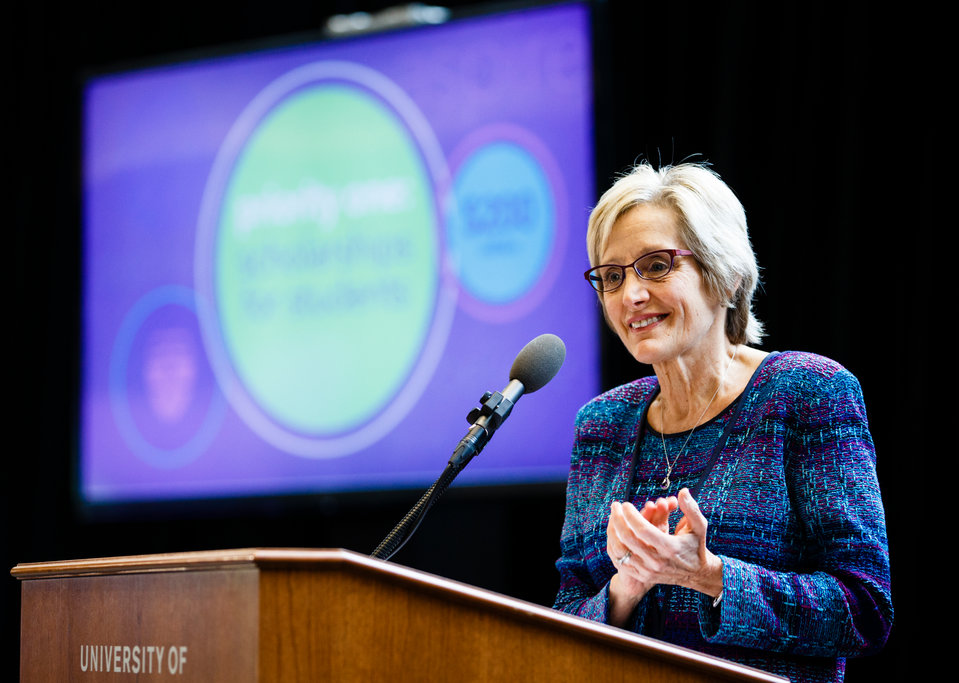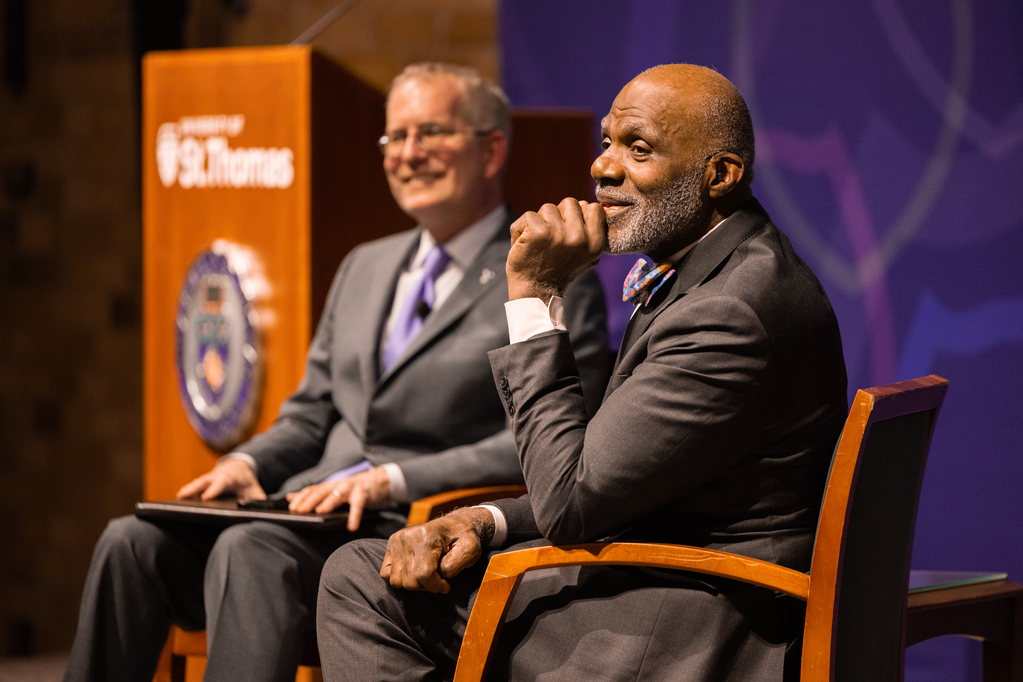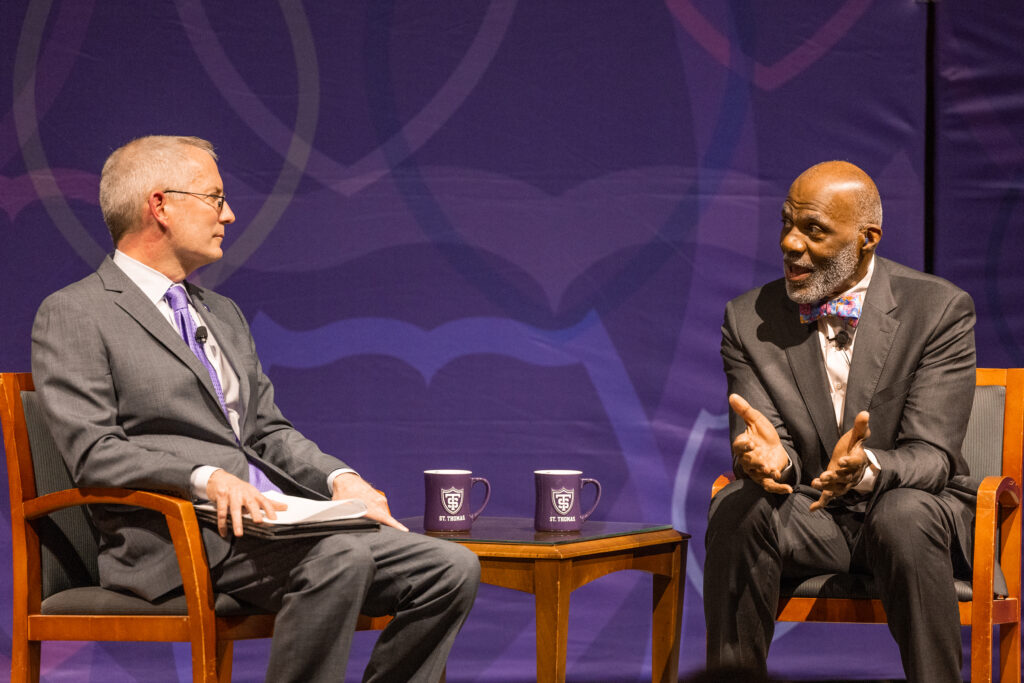What is a Catholic university? Is Catholic a noun and university a modifier? Is university a noun and Catholic the modifier? Or is Catholic university an integrated phrase – a noun in and of itself, with no modifiers?
In September, I was honored to join university presidents from Boston College, Notre Dame, Trinity Washington University and Fordham at the University of Notre Dame to reflect on the legacy of the Land O’Lakes Statement on the occasion of its 50th anniversary. In 1967, some two dozen Catholic university leaders gathered at Land O’Lakes, Wisconsin, to draft a document on the role of Catholic higher education in the modern world which came to be known as the Land O’ Lakes Statement.
In foregrounding distinctive Catholicity alongside the need for academic excellence and academic freedom, it espoused a new and bold vision for Catholic colleges and universities. The leaders envisioned Catholic universities among the most respected universities in our country for their teaching and research. They explicitly integrated the academic and Catholic missions, highlighting the roles of theology and interdisciplinary encounters as defining elements of academic excellence.
A Catholic university, they said, should give preference in its teaching, research and public service to questions of human urgency such as civil rights, international development and peace, and poverty, all of which remain issues of human urgency today.
They described the university’s social community as one where students express and live their Christianity, and where faculty and students explore together new forms of Christian living, witness and service.
Finally, the leaders believed Catholic universities should welcome people of all faiths and embrace the possibility that God can be encountered in unexpected places. They believed all people share responsibility for human history and thus need a foundation of respectful dialogue and understanding from which to pursue their shared responsibility.
As I reflect on the University of St. Thomas, I am reminded of the original vision in the late 1800s of our extraordinary founder, Archbishop John Ireland. His vision for St. Thomas was more along the lines of the integrated phrase, Catholic university. He stressed both preserving the faith and rigorous academic preparation with a breadth and depth sufficient to prepare its graduates to become the public intellectuals of their time.
In today’s increasingly polarized society, how do we embody Ireland’s vision and our mission, inspired by Catholic intellectual tradition, to educate students to be morally responsible leaders who think critically, act wisely, and work skillfully to advance the common good?
We embrace the ultimate harmony of faith and reason and believe that both inform the other.
We respect and promote the dignity of all human persons and recognize that each person is created by God and equally sacred in his eyes.
We are devoted to integral human development and seek to advance the intellectual, moral and spiritual development of all students.
We welcome respectful and rigorous consideration of ideas, thoughts and differences. Encountering ideas or faith perspectives counter to our own is an important step in fully shaping our own convictions.
We strive to be a community of inclusion, genuine encounter and accompaniment; seeing others as God sees them, with empathy, love and compassion. This is our calling.
Read more from St. Thomas magazine.


